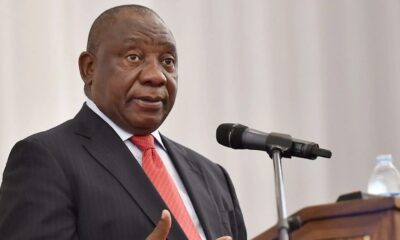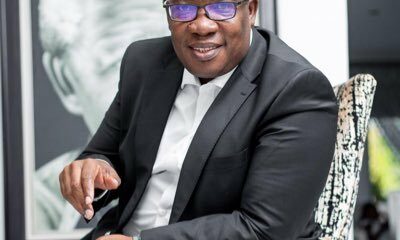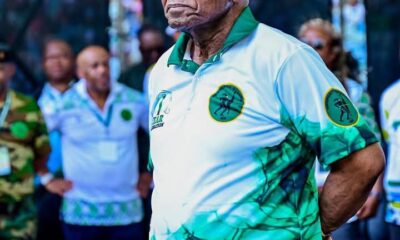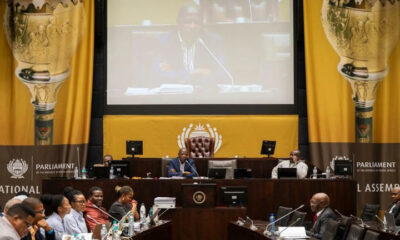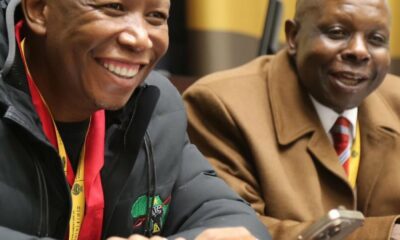News
Zuma Foundation Slams State Over Duduzile Zuma-Sambudla Trial, Calls Case “Political Persecution”
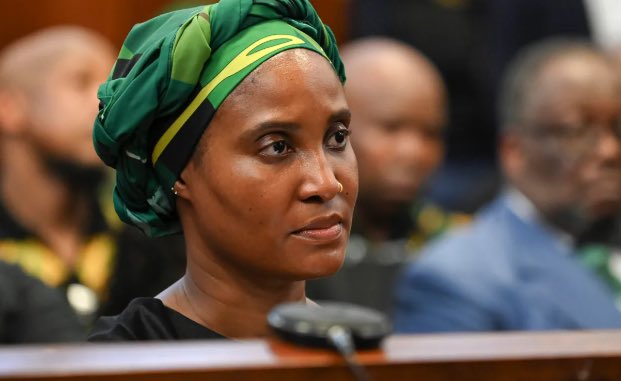
Zuma Foundation Slams State Over Duduzile Zuma-Sambudla Trial
The courtroom in Durban was packed with quiet tension on Monday morning as Duduzile Zuma-Sambudla, daughter of former president Jacob Zuma, arrived for the start of her highly publicised trial. Wearing a calm smile, she walked into the Durban High Court surrounded by supporters, a picture of composure amid the storm brewing around her.
But outside those walls, the Jacob Zuma Foundation had already set the tone, accusing the State of “renewed abuse of power” and waging what it calls a politically motivated crusade against the Zuma family.
A case born out of South Africa’s darkest unrest
Zuma-Sambudla faces three charges linked to her social media activity during the July 2021 unrest, a period that saw over 300 people killed and widespread looting and destruction, particularly in KwaZulu-Natal.
Prosecutors allege she incited public violence and terrorism through online posts, including content that allegedly encouraged people to take to the streets following her father’s imprisonment. The State is relying on Section 17 of the Riotous Assemblies Act, a relic from 1956 that prohibits gatherings intended to cause riots.
Zuma-Sambudla, now a Member of Parliament for the uMkhonto weSizwe Party (MKP), has consistently denied the allegations, saying she merely expressed solidarity with her father, not violence.
“Weaponising justice”: The Foundation’s fiery response
In a statement that has already set social media alight, the Jacob Zuma Foundation accused the National Prosecuting Authority (NPA) of “weaponising the criminal justice system to settle political scores.”
Foundation spokesperson Mzwanele Manyi said the State’s case was “baseless, vindictive, and rooted in political revenge.”
“For more than two decades, state institutions have been selectively mobilised to destroy President Zuma and those associated with him,” Manyi said.
“Having failed to destroy the father and the son, the State has now turned its energies to the daughter a loyal and outspoken pillar of strength in her father’s life.”
Manyi argued that Zuma-Sambudla’s “real crime” was showing loyalty during what the foundation continues to describe as “the unconstitutional imprisonment” of Jacob Zuma in 2021.
The politics of expression and the power of words
At the heart of the case lies a broader national debate: where does free speech end and incitement begin?
Manyi and the foundation insist that Duduzile’s posts including slogans such as “Amandla!” and “Azishe!” were part of South Africa’s liberation lexicon, not calls for violence.
“The use of struggle-era language cannot be criminalised,” Manyi said. “To call these expressions ‘terrorism’ is to erase the very language of resistance that built this democracy.”
Legal experts say this argument may form a cornerstone of Zuma-Sambudla’s defence particularly since South African courts have previously ruled that slogans like “Dubul’ibhunu” must be interpreted within historical context rather than taken literally.
“A trial for being her father’s daughter”
The Zuma Foundation framed the proceedings as part of a larger pattern of familial persecution, pointing to previous failed prosecutions against Duduzane Zuma, the former president’s son.
“History will record this moment as another low point in the misuse of state institutions,” the foundation said. “Ms Duduzile Zuma-Sambudla is not on trial for a crime, she is on trial for being her father’s daughter.”
The statement went further, comparing the State’s actions to apartheid-era tactics used to break liberation families by targeting their children.
“The persecution of an 83-year-old statesman through his offspring is both cruel and cowardly,” Manyi said.
Public reaction: a divided nation revisits old wounds
On social media, the response has been sharply divided.
Supporters of the MK Party and Zuma loyalists flooded X (formerly Twitter) with messages of solidarity, using hashtags like #HandsOffDuduZuma and #JusticeForDuduzile, arguing that the charges are an extension of long-standing political grudges.
Others, however, have questioned the foundation’s framing of victimhood, pointing out that the 2021 unrest devastated small businesses, caused mass job losses, and left deep scars on local communities.
Political commentator Tessa Dooms wrote:
“Freedom of speech must be protected, yes, but when words coincide with violence, we must interrogate accountability, not just allegiance.”
A battle beyond the courtroom
Whether seen as a political witch-hunt or a test of accountability, the trial of Duduzile Zuma-Sambudla reopens one of South Africa’s most painful chapters.
For many, it’s not just about tweets, it’s about the legacy of Jacob Zuma, the blurred line between activism and incitement, and the nation’s ongoing struggle to balance justice with political freedom.
The trial, expected to run for two weeks, will no doubt reignite debates about media influence, judicial independence, and generational power in post-apartheid South Africa.
As the court adjourned on Monday, one thing was clear: this is no ordinary trial. It’s a symbolic clash between the State and one of the country’s most polarising political dynasties, a fight that could shape not just reputations, but how South Africa defines dissent in a fragile democracy.
{Source: IOL}
Follow Joburg ETC on Facebook, Twitter , TikTok and Instagram
For more News in Johannesburg, visit joburgetc.com

